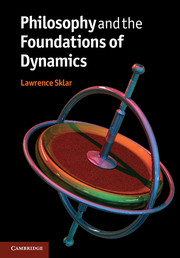Book contents
- Frontmatter
- Contents
- Chapter 1 Introduction
- Chapter 2 The pre-history of classical dynamics
- Chapter 3 The astronomical revolution
- Chapter 4 Precursors to Newtonian dynamics
- Chapter 5 The Newtonian synthesis
- Chapter 6 Philosophical aspects of the Newtonian synthesis
- Chapter 7 The history of statics
- Chapter 8 The development of dynamics after Newton
- Chapter 9 The “Newtonian” approach after Newton
- Chapter 10 From virtual work to Lagrange's equation
- Chapter 11 Extremal principles
- Chapter 12 Some philosophical reflections on explanation and theory
- Chapter 13 Conservation principles
- Chapter 14 Hamilton's equations
- Chapter 15 Canonical transformations, optical analogies and algebraic structures
- Chapter 16 The search for new foundations
- Chapter 17 New directions in the applications of dynamics
- Chapter 18 Spacetime formulations of Newtonian dynamics
- Chapter 19 Formalization: mass and force
- Chapter 20 Relationist dynamics
- Chapter 21 Modes of explanation
- Chapter 22 Retrospective and conclusions
- References
- Index
Chapter 22 - Retrospective and conclusions
Published online by Cambridge University Press: 05 December 2012
- Frontmatter
- Contents
- Chapter 1 Introduction
- Chapter 2 The pre-history of classical dynamics
- Chapter 3 The astronomical revolution
- Chapter 4 Precursors to Newtonian dynamics
- Chapter 5 The Newtonian synthesis
- Chapter 6 Philosophical aspects of the Newtonian synthesis
- Chapter 7 The history of statics
- Chapter 8 The development of dynamics after Newton
- Chapter 9 The “Newtonian” approach after Newton
- Chapter 10 From virtual work to Lagrange's equation
- Chapter 11 Extremal principles
- Chapter 12 Some philosophical reflections on explanation and theory
- Chapter 13 Conservation principles
- Chapter 14 Hamilton's equations
- Chapter 15 Canonical transformations, optical analogies and algebraic structures
- Chapter 16 The search for new foundations
- Chapter 17 New directions in the applications of dynamics
- Chapter 18 Spacetime formulations of Newtonian dynamics
- Chapter 19 Formalization: mass and force
- Chapter 20 Relationist dynamics
- Chapter 21 Modes of explanation
- Chapter 22 Retrospective and conclusions
- References
- Index
Summary
Classical dynamics has a very special place within our theoretical description of the world. For one thing, the theory has had a “lifetime” within physics that is nothing short of astonishing. Beginning with the earliest attempts at a characterization of motion and its causes within ancient Greek science, developing slowly but with some sureness through the Islamic and medieval European eras, exploding into a grand synthesis in the Scientific Revolution, and showing still further important development in its foundations and in applications from then to the present, the theory's place in science is one not of years or centuries but of millennia.
Even now, after having been displaced by relativistic theories and quantum theories and no longer being considered the central “truth” of theoretical physics, the theory still surprises us with new formulations, new applications and new interpretations. Theories in fundamental physics are typically formulated with a characterization of basic states and their possible configurations and changes that is formally similar to the kinematics of dynamics, and with a characterization of changes of these states over time by means analogous to the dynamical parts of classical dynamics. And in the case of relativistic and quantum dynamics the crucial role played by classical dynamics is even clearer since, contrary to some radical “revolutionary” views of the history of science, the important ancestral relationship of the classical dynamical concepts to those of the newer theory is clear.
Information
- Type
- Chapter
- Information
- Philosophy and the Foundations of Dynamics , pp. 261 - 262Publisher: Cambridge University PressPrint publication year: 2012
